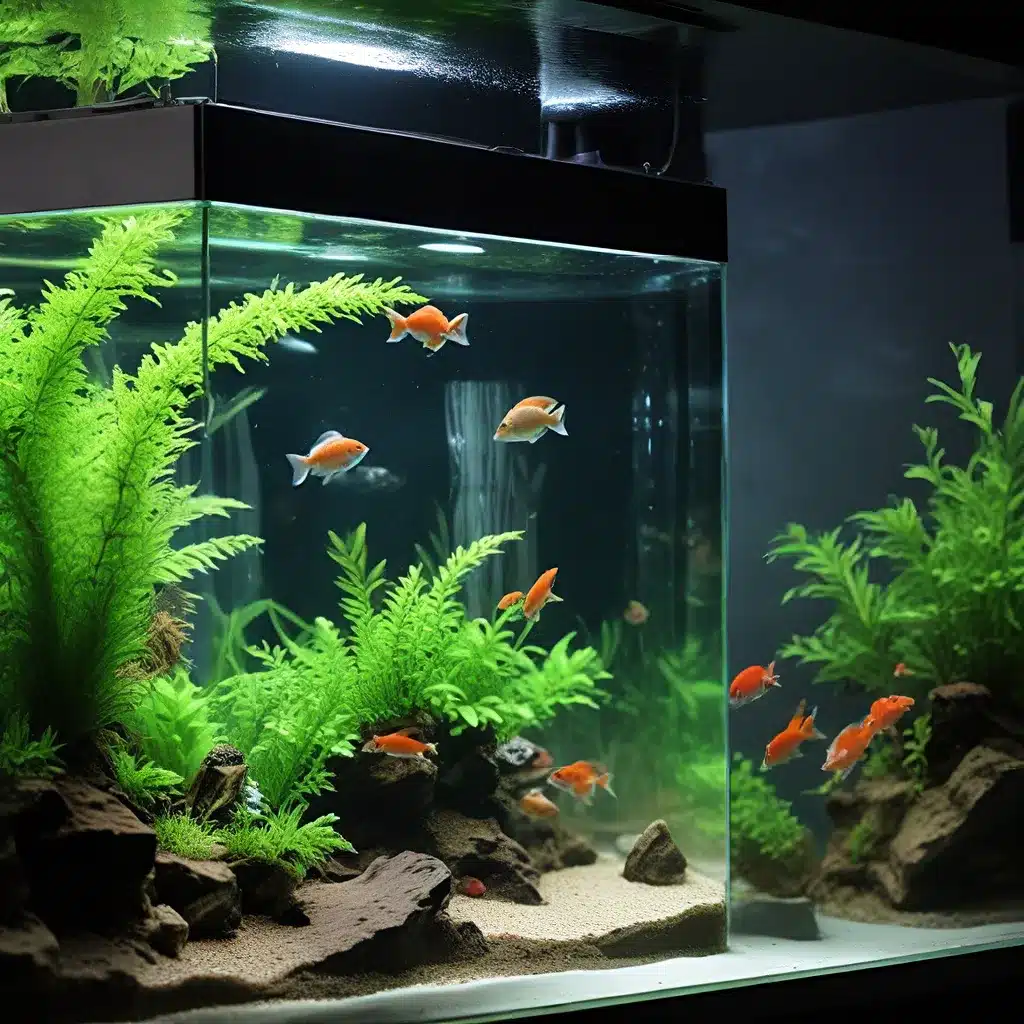
Understanding the Importance of Aquarium Filtration
Maintaining a thriving aquarium is a delicate balance of creating the perfect environment for your aquatic inhabitants. At the heart of this balance lies the aquarium filtration system, which plays a crucial role in keeping your tank’s water clean, clear, and hospitable for your beloved fish, plants, and other aquatic life.
Navigating the world of aquarium filtration can be a daunting task, with a wide array of options available, each with its own unique features and benefits. In this comprehensive guide, we will explore the different types of filtration systems, their key functionalities, and how to choose the right one for your specific aquarium setup and needs.
Types of Aquarium Filtration Systems
When it comes to aquarium filtration, there are three primary types to consider: mechanical, chemical, and biological filtration. Each of these systems serves a crucial purpose in maintaining a healthy, balanced aquarium ecosystem.
Mechanical Filtration
Mechanical filtration is the process of physically removing solid waste, uneaten food, and other suspended particulates from the water. This is typically achieved through the use of filter media, such as sponges, pads, or cartridges, that trap and capture these materials, ensuring a cleaner and clearer tank environment.
Chemical Filtration
Chemical filtration involves the use of specialized media, such as activated carbon, to remove dissolved organic compounds, tannins, and other impurities from the water. This type of filtration can help improve water clarity, remove discoloration, and reduce the presence of harmful substances.
Biological Filtration
The critical component of any well-designed aquarium filtration system is biological filtration. This process involves the use of specialized bacteria that break down and convert harmful nitrogenous waste, such as ammonia and nitrites, into less toxic substances like nitrates. Maintaining a healthy population of these beneficial bacteria is essential for the long-term health and stability of your aquarium.
Choosing the Right Filtration System
When selecting the appropriate filtration system for your aquarium, it’s essential to consider several factors, including the size of your tank, the number and type of inhabitants, the presence of live plants, and your overall aquarium management goals.
Tank Size and Aquarium Inhabitants
The size of your aquarium is a primary factor in determining the necessary filtration capacity. As a general rule, the filtration system should be able to turn over the entire volume of your tank multiple times per hour, typically between 4 to 6 times. This ensures efficient water circulation and effective waste removal.
Additionally, the number and type of fish or other aquatic organisms in your tank will also influence the filtration requirements. Heavily stocked aquariums or those with larger, more waste-producing species will necessitate a more robust filtration system to maintain water quality.
Aquascaping and Plant Considerations
If your aquarium features a lush, planted layout, you’ll need to consider the impact of your chosen filtration system on the aquatic plants. Some filtration media, such as certain types of chemical filtration, can inadvertently remove beneficial nutrients required for plant growth. Carefully selecting a filtration system that complements your aquascaping vision is crucial.
Filtration System Functionality
When evaluating different filtration systems, pay close attention to their specific functionalities and capabilities. Some systems may excel at mechanical filtration, while others are better suited for biological or chemical filtration. Striking the right balance between these three filtration types is key to achieving a healthy, balanced aquarium ecosystem.
Maintaining and Optimizing Your Filtration System
Proper maintenance and optimization of your aquarium filtration system are essential to ensure its long-term effectiveness and the continued well-being of your aquatic inhabitants. Regular filter media changes, cleaning, and monitoring are crucial steps in this process.
Filter Media Maintenance
Depending on the type of filtration media used, replacement or cleaning schedules may vary. Mechanical filter pads and sponges may require more frequent attention, as they can become clogged with debris over time. Chemical filtration media, such as activated carbon, should be replaced as recommended by the manufacturer to maintain their effectiveness.
Water Quality Monitoring
Regularly testing your aquarium’s water parameters, such as pH, ammonia, nitrites, and nitrates, can provide valuable insights into the efficiency of your filtration system. If you notice any significant imbalances or spikes in these levels, it may be a sign that adjustments or modifications to your filtration setup are necessary.
Optimizing Filtration Capacity
As your aquarium inhabitants grow or your aquascaping evolves, you may need to reevaluate and potentially upgrade your filtration system to ensure it remains adequate for your aquarium’s needs. Investing in a more powerful filtration system or adding supplementary filtration units can help maintain optimal water quality and support the long-term health of your aquatic ecosystem.
Conclusion
Mastering aquarium filtration is a crucial aspect of successful aquarium keeping. By understanding the various types of filtration systems, their functionalities, and how to choose the right one for your specific needs, you can create a thriving and sustainable aquatic environment that will bring joy and fascination to you and your aquatic companions.
Remember, the King Aquarium team is always here to provide expert guidance and support as you navigate the world of aquarium filtration and care. Reach out to us with any questions or concerns, and we’ll be happy to help you unlock the full potential of your aquarium setup.

